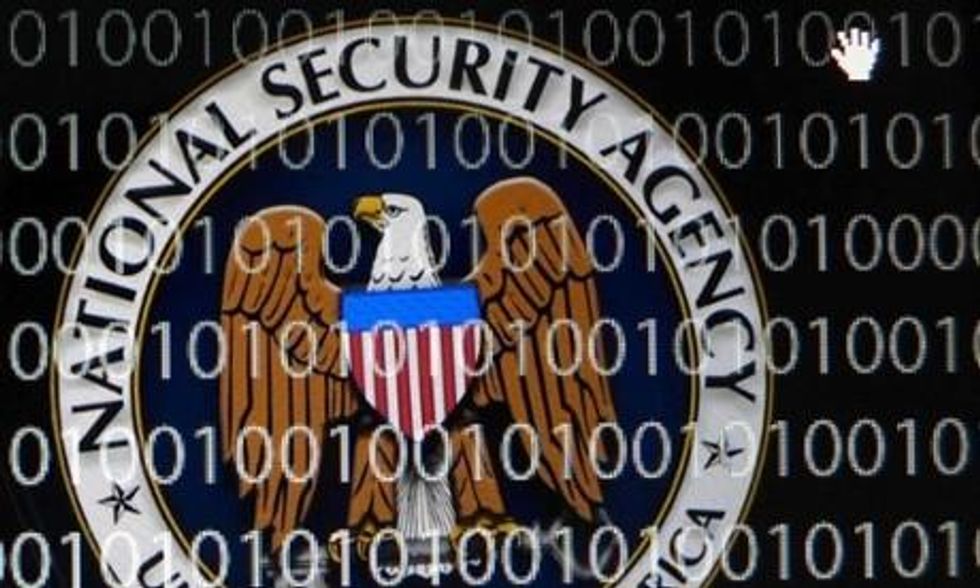This week was undoubtedly a turning point in the NSA debate. Edward Snowden said it himself on Monday, as some of the NSA's most ardent defenders, including the House Intelligence Committee and the White House, suddenly released similar proposals endorsing the end of the NSA's bulk collection of phone records as we know it.
Stopping the government from holding onto of all Americans' phone metadata would undoubtedly be a good thing for American privacy, but if you read between the legislative lines, the government might not be curtailing mass surveillance so much as permanently entrenching it in American law.
Rep Justin Amash, one of the NSA's leading critics in the House, said of the Intelligence Committee bill: "It doesn't end bulk collection but actually puts more Americans in danger of having their constitutionally protected rights violated." While the Obama plan is undoubtedly more promising, with court requests and much more, Jameel Jaffer of the American Civil Liberties Union has several important questions about the proposal that need to be answered before anyone will really be able to judge. And the Cato Institute's Julian Sanchez detailed why neither of these proposals are as good as the USA Freedom Act, which may now be getting boxed out.
To be sure, neither of the two new proposals would actually "end mass surveillance", as this National Journal headline proclaimed, or even "end bulk collection" entirely, as most of the other reports suggest. Even the authors know it: the title of the House Intelligence bill was the "End Bulk Collection Act" for just one day before it was changed, perhaps because, as Techdirt's Mike Masnick wrote, "[Rep Mike] Rogers and his staff realized that ... was so bogus that they couldn't go forward."
Curiously, a large majority of the House bill focuses on new ways for the government to collect data from "electronic communications service providers" - also known as the internet companies. Why is a bill that's supposedly about ending bulk collection of phone-call data focused on more collection of data from internet companies? And then there's this clause, pointed out by the eagle-eyed Marcy Wheeler, which seems to try to head off court challenges to the bill once it's passed into law.
At least the White House proposal insists on "a new kind of court order" before every search, but the administration has already started slipping into dangerous territory. According to the first report in the New York Times on Monday, the NSA would only be allowed to search phone records under the Obama proposal if the agency could prove a reasonable suspicion to terrorism. By the end of the week, the White House's "fact sheet" said the NSA would be able to search "within two hops" of phone records - that's potentially tens of thousands of people - based on a phrase that should send chills down the spine of every journalist who has ever had a source the government may not like: "national security concerns". Why do they even need the extraordinary "two-hops" power at all again?
And what about all the reforms left out of both proposals? Like preventing "backdoor" warrantless searches on Americans. Like stopping the NSA from undermining common encryption used by everyone. Like leaving bulk collection for the rest of the world's citizens untouched. As Foreign Policy's Shane Harris wrote, the NSA may get more out of this bill than Snowden himself.
If this is the only thing the Obama administration is doing about surveillance reform, it's not nearly enough.
And if you want to get an idea of how terrifying the House Intelligence bill will likely become, just look at the co-sponsors. House Intelligence Committee chairman Mike Rogers, one of the authors, has been sliming Snowden as a Russian agent for months, despite absolutely no proof. Rep Peter King, another sponsor, has called for the NSA journalists prosecuted. House speaker John Boehner, who has fought tooth and nail against NSA reform ever reaching the House floor, is suddenly "praising" the "bipartisan" bill. And after months of desperately defending it as his brainchild, all of a sudden NSA chief Keith Alexander now says he supports the new proposal to "end" bulk collection. Why?
Rogers and Alexander may be retiring, but things are moving fast behind the scenes. The White House, after dragging its feet for months, now is imploring quick action by Congress. It's also been rumored the House Intelligence Committee will mark its bill up and send it to the House floor as early as next week, which will effectively box out the USA Freedom Act.
We'd do well to remember a more recent time in which Congress took up NSA wrongdoing, during the first warrantless wiretapping scandal of the Bush years. Then was much like now: outrage among many when the Times reported the NSA was wiretapping Americans without a warrant in 2005, USA Today reporting that the NSA had a "massive database" with millions of Americans' phone records in 2006, and AT&T whistleblower Mark Klein going to EFF with definitive proof the NSA was wholesale copying large portions of Internet traffic later that year.
Congress responded with outrage and public hearings, but when it came to passing actual new laws, there was no sweeping reform - there was sweeping under the rug: Congress legalized much of the Bush administration's illegal practices with the FISA Amendments Act (now Obama's justification for PRISM and upstream surveillance), and killed lawsuits against the telecommunications companies like AT&T by giving them retroactive immunity, even though they undoubtedly committed felonies while helping the government covertly spy on its citizens without a court order.
This is all happening with astounding speed and is now all of a sudden being spearheaded by the players in both parties who have repeatedly misled the American public over the past 10 months. Maybe it's time we heed the warning of the late George Carlin: "'Bipartisan' usually means that a larger-than-usual deception is being carried out."


